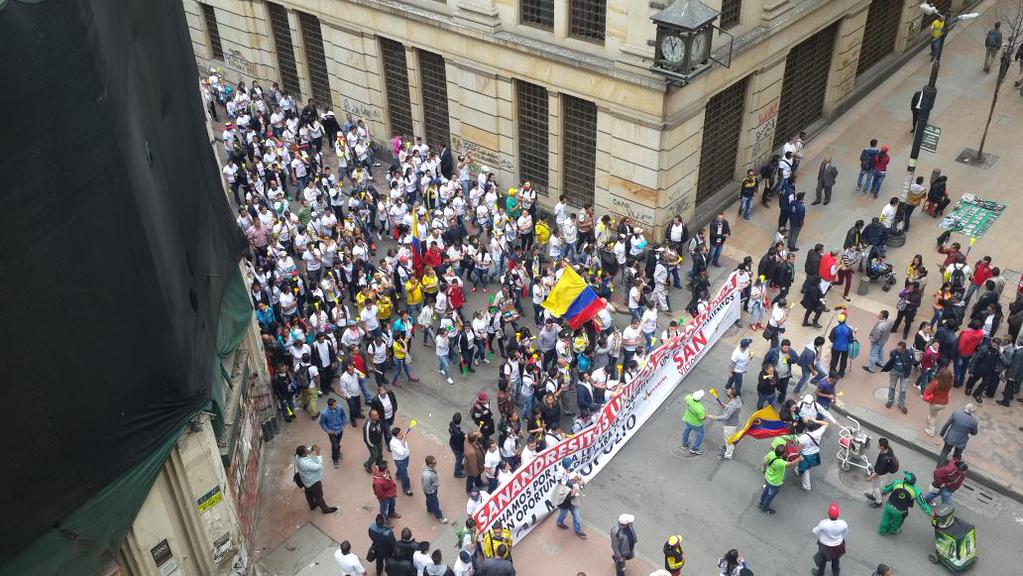EspañolOn Wednesday, June 17, tens of thousands of Colombian merchants took to the streets to protest a controversial anti-smuggling law approved on Tuesday.

Shop owners argue that the new law meant to crackdown on contraband is harmful to their businesses. The Anti-Contraband Law will stiffen penalties for smuggling-related crimes, increase fines, and lower the bar for what is considered a felony.
However, merchants at the San Andresito market in Bogotá say the new law is the wrong way to go to combat illegal smuggling.
“You have to lift the administrative barriers, end the inequalities to import certain products, and the monopoly that some multinational [companies] have over imports,” said the spokesman for the Merchants of San Andresito in Bogotá, Albeiro Camacho.
Camacho says there are too many obstacles to trade in Colombia as it is. “If you buy liquor in Medellín, and you take it to Bogotá, you can be accused of smuggling.” Under the new law, moving booze illegally across the country is punishable by up to 13 years in prison and a potential fine of over US$1 million.
The merchant spokesman adds that the government should instead take the same approach it took with home appliances. Once the administrative barriers were remove, he says, the “smuggling of washing machines, refrigerators, blenders, and other appliances disappeared.”
In Medellín, businesses shut their doors between 9 a.m. and midday in protest of the anti-smuggling reform, according to Javier Gaviria Betancur, executive director of the Association of Merchants.
By the afternoon, however, government representatives announced they would make some concessions on the anti-smuggling law to appease the shop owners.
“There are some restrictions that keep merchants from selling certain products, and we are going to reassess those restrictions. We will analyze which aspects of the law need to be implemented gradually from their point of view,” Colombian Economy Minister Mauricio Cárdenas said.
According to the firm Fedesarrollo, smugglers in Colombia moved over $6 million in products in 2012.
Source: El Espectador.
 Versión Español
Versión Español












